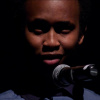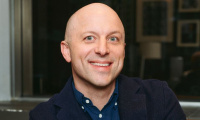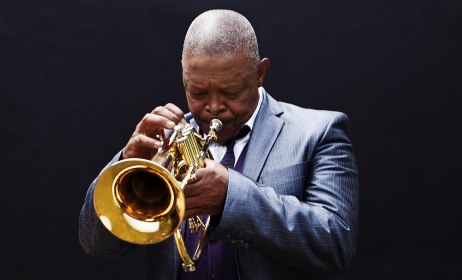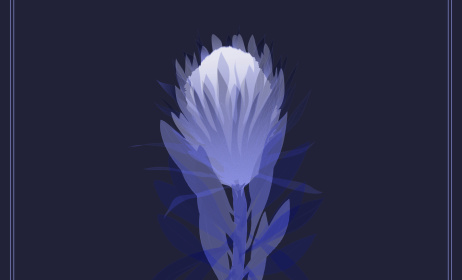SA’s Thesis is a dissertation of musical chemistry
A thesis is a long text written with focus on a particular subject for a university degree. It’s also a conclusive statement that must be tested for the validity of its premise. Finally, Thesis is a Cape Town-based contemporary jazz duo whose inspiration comes from a relationship seldom seen with most working pairs.
 Thesis is the brainchild of Ondela Simakuhle and Ayanda Charlie.
Thesis is the brainchild of Ondela Simakuhle and Ayanda Charlie.
Thesis comprises the multiple talents of saxophonist, keyboardist and composer Ondela Simakuhle and creative writer Ayanda Charlie. Their musical chemistry makes them a melodic, harmonic and creative singularity that borders on the spiritual. The existence of Thesis was predestined. Much like the panspermia hypothesis that proposes the inevitability of life based on the marriage of space dust and Earth’s propensity to support it, so does the meeting of the two musicians make for their unavoidable immersion into musical creation – where conception is reciprocated and both members draw off each other’s energy.
From Cleffies to duo
Thesis was formed in 2013 after the disbandment of the Cleffhangers, a group that was assembled for a once-off performance in the Mother City. Most of the Cleffhangers went on to pursue other goals like academics and work – but it was Simakuhle and Charlie who decided to carry on. Their appreciation for each other’s work ethic and creative process was a winning formula.
“Ondela and I were the only two people who felt like we really enjoyed this,” Charlie says. “We like writing, arranging and performing music together. It all worked out because we had been writing together already with the Cleffies.
“We were the last ones standing. We realised we had things in common. I found that I loved writing and that Ondela had always enjoyed the process. Although there had been other collaborators, we found that we understood each other on a level that that isn’t easy to express with words.”
The story behind the name
While searching the Internet in 2014, Charlie suggested that they name their project Thesis.
“When we looked deeper into what that means it made sense to us,” Charlie said. “We both felt that the music we were doing was a combination of years of listening and thinking – about being scholars of music on a formal and informal level. We were writing music so much it was just coming out of us and we felt like it was a dissertation.”
Open to ideas
The duo’s creative telepathy gives their music an eclectic quality that is difficult to coin. Although many say that Thesis’ music falls in the jazz genre, the two musicians believe their compositions can’t be easily boxed and labelled. The music they create is a constant experiment that works off a high level of confidence that the two are comfortable with.
“Sometimes a songs already exists and we know what we want to say,” Simakuhle said. “Other times we hear other people and write a song and we know it’s not for us and so we’ll write and finish it with someone else in mind. We’ll write it from scratch and sit there for hours to figure out what it’s trying to say and evoke, and we’ll never sing it or touch it again.”
Xhosa just sounds better
Thesis sing in Xhosa, a language both members say they feel comfortable using in order to express themselves without any limitation. That element makes their music original and more relatable.
“There’s a way that Xhosa words form in my mouth that just makes me sound better,” Charlie says. “Xhosa is the best language to communicate the things we want to say.
Simakuhle says: “We’ve got a very specific way of writing and it almost always is in Xhosa because it’s just not natural to me to write in anything else.”
Working things out
Thesis say working as a duo is less complicated than working in a big ensemble. Deciding on a working schedule and sporadic disagreements are some of the challenges the young duo is still figuring out.
“The most difficult part of working as a duo is that sometimes we don’t always agree on everything, but those instances are few and far between. For the most part I just feel lucky that I work with somebody who is likeminded and thinks like I do,” Simakuhle said.
Charlie says: “In a duo there’s a lot of negotiation of time and logistics so we’re supposed be aware of each other’s lives and trying to work together to make things happen. Communication is also something that needs to be worked on and we need to be intentional about it.”
What’s next for Thesis?
In their personal capacities Simakuhle and Charlie do not see themselves working on solo projects in the near future because of the inseparable bond they share.
“I don’t see myself being Ondela outside Thesis as a performer. If and when the time comes that thesis no longer exists as a performing duo, you will not be expecting a solo Ondela doing anything,” Simakuhle said.
Charlie feels the same. “I don’t really think about pursuing a solo career because I’m not a singer first. I’m somebody who writes and arranges music and I do that best and very comfortably with Ondela.” Charlie added.
Ondela and Simakuhle said they want to continue making attractive music that is true to Africa. The two also want to collaborate with international artist, which they see as an opportunity to enter the broader music market.



























Comments
Log in or register to post comments